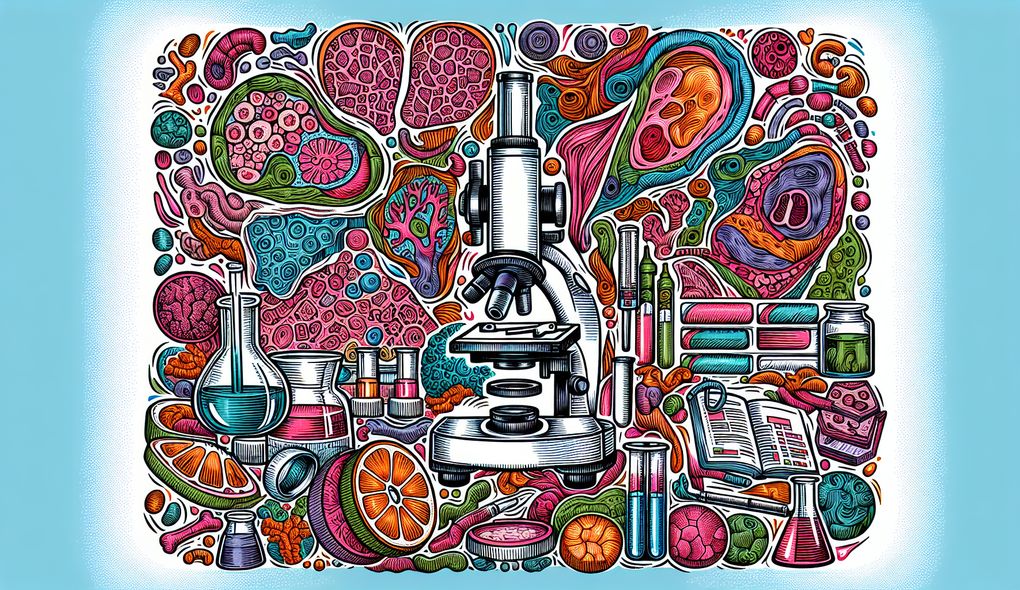Can you explain the process of analyzing and interpreting medical laboratory tests to diagnose diseases?
JUNIOR LEVEL

Sample answer to the question:
Analyzing and interpreting medical laboratory tests to diagnose diseases is a crucial process in the field of pathology. It involves carefully examining the results of various tests and using your knowledge of medical terminology and pathology practices to identify potential diseases or abnormalities. You need to pay close attention to detail and have strong analytical and problem-solving skills to accurately interpret the test results. Collaboration with other medical professionals is also important to ensure comprehensive patient care. Additionally, it is important to stay updated with new medical findings and diagnostic techniques through continuous education.
Here is a more solid answer:
As a pathologist, analyzing and interpreting medical laboratory tests is a critical part of diagnosing diseases accurately. It requires strong analytical and problem-solving skills to carefully examine the test results and identify any abnormalities or potential diseases. Attention to detail is essential to ensure the accuracy of the diagnosis. Effective communication and interpersonal skills are also important in collaborating with other medical professionals to provide comprehensive patient care. The ability to work independently and as part of a team is crucial, as you will often consult with senior pathologists and prepare detailed reports on your findings. Proficiency in using laboratory information systems and other computer programs relevant to pathology is necessary to facilitate data analysis and ensure efficient workflow. Staying updated with new medical findings and diagnostic techniques through continuous education is vital to provide high-quality healthcare services.
Why is this a more solid answer?
The solid answer provides a more detailed explanation of the process of analyzing and interpreting medical laboratory tests to diagnose diseases, and it explicitly addresses the required skills and qualifications listed in the job description. However, it could still benefit from specific examples or scenarios to further demonstrate the candidate's expertise and experience in this area.
An example of a exceptional answer:
Analyzing and interpreting medical laboratory tests is a multi-step process that requires a holistic approach to diagnose diseases accurately. Firstly, I would meticulously review the test results, paying keen attention to detail and comparing them with reference ranges to identify any abnormalities. Then, I would utilize my strong analytical and problem-solving skills to interpret the results and correlate them with the patient's medical history, symptoms, and clinical findings. Effective communication and interpersonal skills are crucial in collaborating with other members of the healthcare team, such as clinicians and radiologists, to gather additional information and ensure comprehensive patient care. Working independently, I would prepare detailed reports on my findings, including relevant clinical information and appropriate recommendations for further diagnostic tests or treatments. Additionally, I would utilize laboratory information systems and other computer programs relevant to pathology to streamline data analysis and improve workflow efficiency. Continuous education is paramount to staying updated with the latest medical findings and diagnostic techniques, enabling me to provide the highest quality of healthcare to patients.
Why is this an exceptional answer?
The exceptional answer provides a comprehensive and detailed explanation of the process of analyzing and interpreting medical laboratory tests to diagnose diseases. It includes specific steps and actions taken by the candidate, showcasing their expertise and experience in this area. The answer also addresses the required skills and qualifications listed in the job description. It demonstrates a thorough understanding of the importance of collaboration with other healthcare professionals, the use of technology and information systems, and the continuous pursuit of knowledge through education.
How to prepare for this question:
- Familiarize yourself with different laboratory tests and their purposes
- Study medical terminology related to pathology
- Practice analyzing and interpreting sample test results
- Improve your analytical and problem-solving skills through puzzles and case studies
- Enhance your communication and interpersonal skills by engaging in group discussions and role-playing scenarios with colleagues
- Stay updated with the latest advancements in pathology and diagnostic techniques through books, journals, and online resources
What are interviewers evaluating with this question?
- Analytical and problem-solving skills
- Attention to detail
- Communication and interpersonal skills
- Ability to work independently and as part of a team
- Proficiency in using laboratory information systems and other computer programs relevant to pathology

